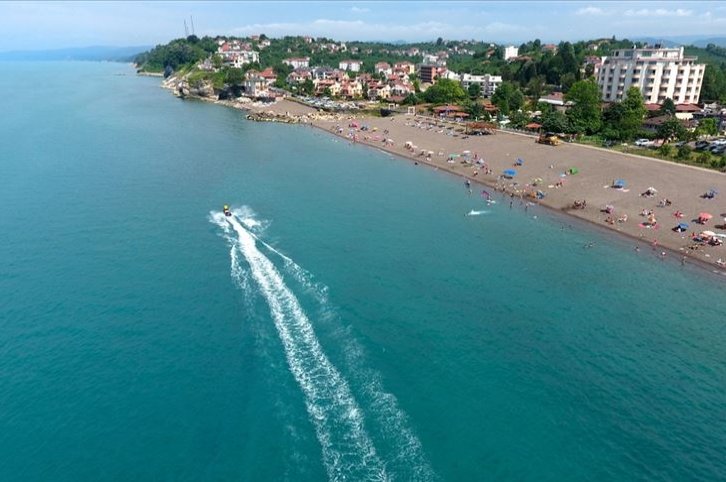
As rising global temperatures continue to impact traditional tourism destinations around the Mediterranean basin, researchers are turning their attention to the potential of the Black Sea coast as an alternative tourism destination.
Faculty members Nazan An and Tufan Turp, affiliated with Boğaziçi University's Climate Change and Policies Application and Research Center, have identified the Black Sea as offering ideal weather for summer tourism and as a significant alternative for the tourism sector to adapt to climate change.
Their research, titled "Projected Summer Tourism Potential of the Black Sea Region," conducted at Boğaziçi University's Climate Change and Policies Application and Research Center, indicates that the Black Sea coast could become an important tourism destination in the future. Cities such as Sakarya, Ordu, Samsun, Trabzon and Rize are highlighted as having the potential to offer pleasant weather for beach tourism.
Discussing their findings with Anadolu Agency (AA), An explained that the research was prompted by the effects of climate change in popular summer tourist destinations. "We began researching the Black Sea region, predicting that it could be considered an alternative route, as temperatures due to climate change have begun to reach disturbing levels for human health in popular summer spots," she noted.
An emphasized that climate change's effects vary across regions and sectors, with tourism being one of the most affected. The research focused on a pessimistic scenario, covering the period between 2026 and 2050, to assess the potential impact on tourism.
"Tourism demand and patterns change based on season, destinations and types. Climate plays a crucial role in tourist decision-making, directly affecting their choices. The study used the Holiday Climate Index, which includes factors like temperature, thermal comfort, aesthetics (precipitation, wind speed, cloud cover) and a beach score. Separate calculations were made for urban and coastal areas, providing more reliable information on tourist comfort by considering multiple climate variables," An said.
Regarding the Black Sea region, An suggested that climate change could improve tourism, potentially attracting more visitors. However, the expert cautioned that without effective measures, touristic regions in the Aegean and Mediterranean may suffer financial losses in the short and medium term.
Emphasizing that determining alternative tourism routes should be considered a solution amid climate change, An said: "The Black Sea coasts can be among the preferable destination alternatives in terms of climate. When we look at the current climatic conditions of the Black Sea, some regions of the central and western Black Sea regions have Mediterranean climate characteristics. The region averages temperatures exceeding 22 degrees Celsius (72 degrees Fahrenheit)."
"Governments and countries need to work together with scientists to determine adaptation policies. As in every sector, climate change adaptation planning in the tourism sector must be made in a holistic manner, taking into account all sector components. In terms of tourism, the process should be managed to both protect existing destinations and provide alternative destinations with solutions compatible with the environment and nature. Climate change must now be included in development plans holistically in every dimension because we are affected from every angle," she said.
Turp noted that tourist behavior, which is normally very difficult to change, may change when heat waves turn into a disaster that can cause mass health problems.
Turp emphasized the need for sustainable tourism investments in the Black Sea region, advocating for the protection and restoration of natural beauty. He highlighted the necessity of changing habits, noting that tourism seasons will shift, leading to temporal differences in demand. Turp predicted that different types of tourism will emerge, potentially increasing demand for regions currently less emphasized in the sector.
He said, "A future is awaiting us when people would choose destinations like Giresun and Sinop over Antalya for summer vacations, and opt for Antalya in the spring instead." He also envisioned a trend where people would buy summer houses in northern regions like the Black Sea, shifting away from southern regions.
